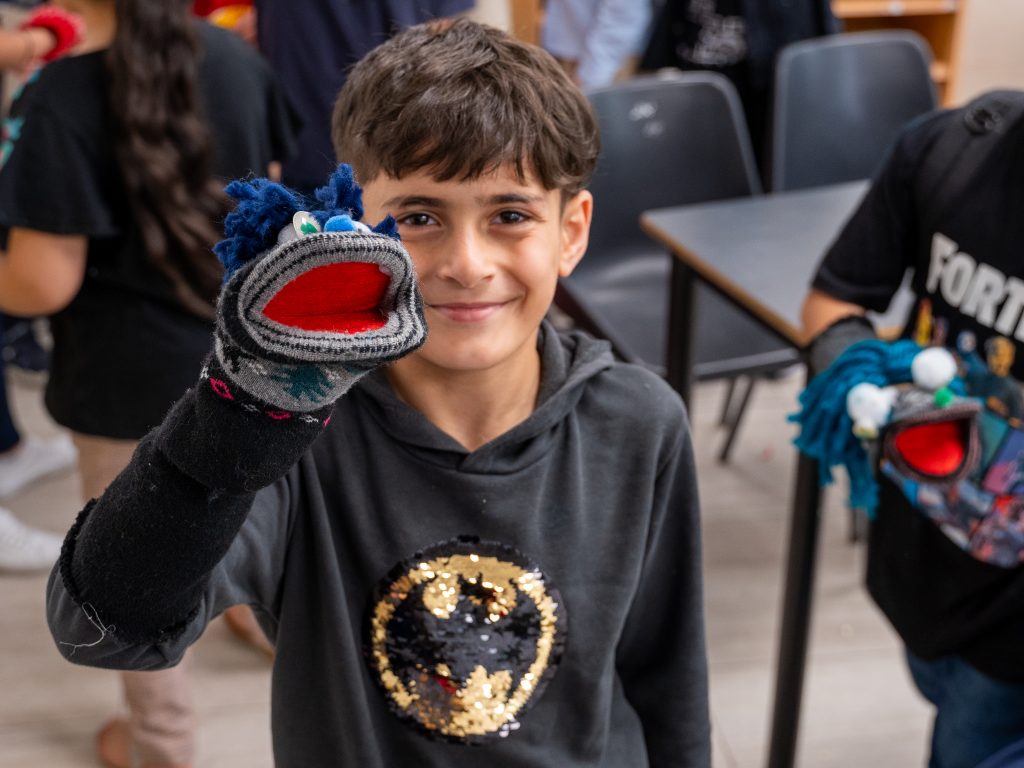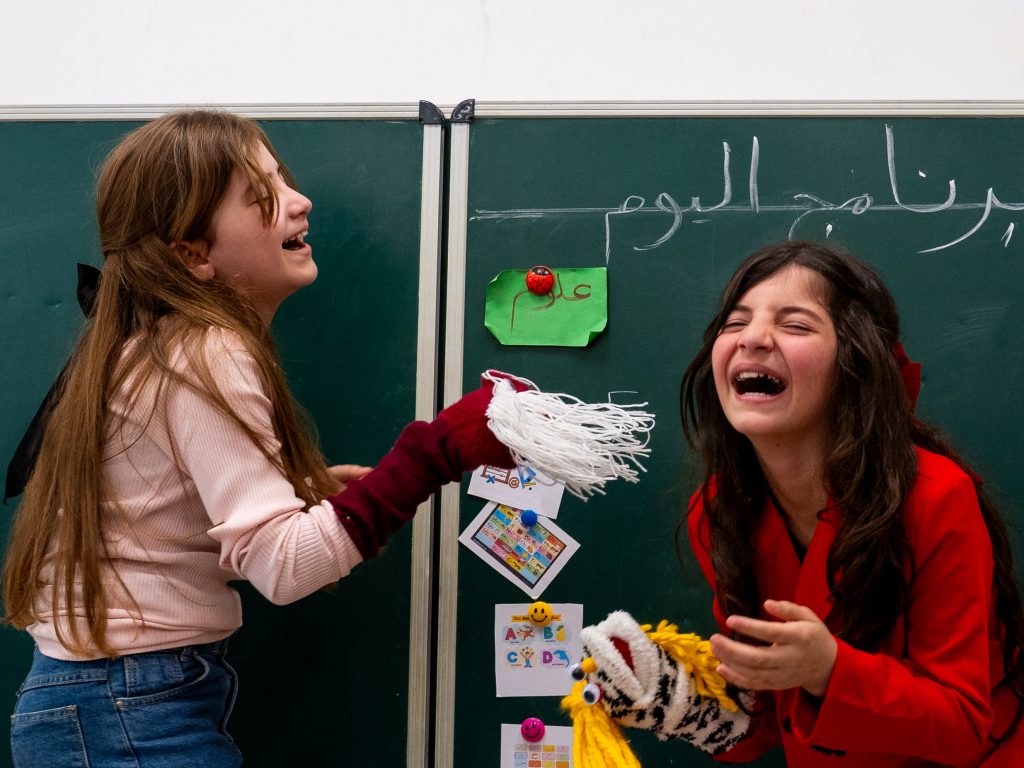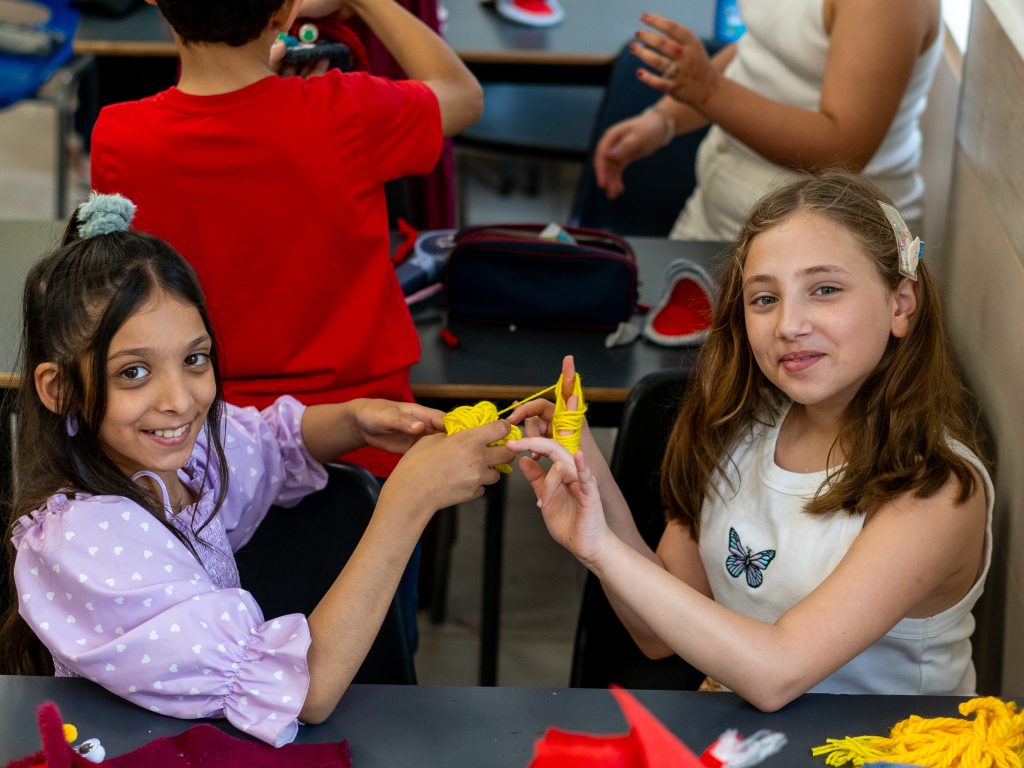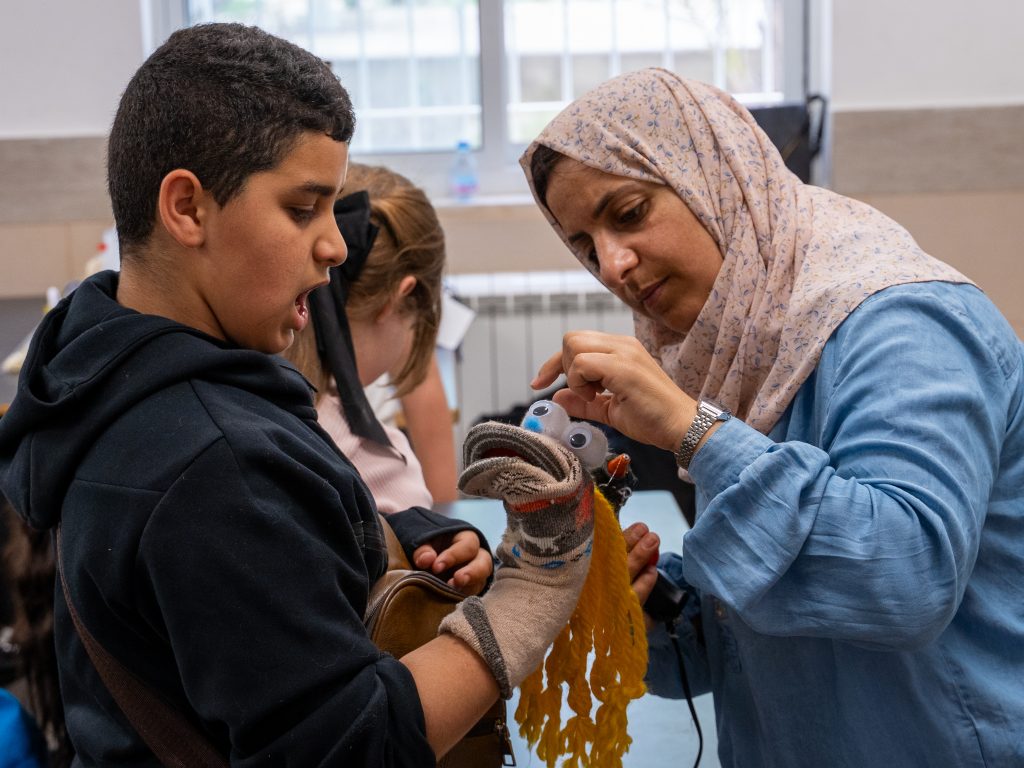It is early morning in Bethlehem. Our partner, Al-Harah Theater, has invited us to join them for one of their puppet-making sessions. Diana Swiety, founder of the first mobile puppet theatre in Palestine, is running today’s session with Nada Sarhan from Al-Harah. In the boot of her car is a big box, overflowing with a seemingly incompatible assortment of socks, glass balls, and colourful bundles of thick yarn. “We use the most basic recycled materials available to create the puppets” Diana tells me as we unload the box and head in to meet class 4.c.

In The Danish House in Palestine we work closely with Al-Harah Theater to strengthen the presence of theater in local communities. An effort that suffers under the conception that art is only fun and games and therefore inappropriate in wartime. When you live under a brutal occupation where people are killed on a daily basis, it can indeed sometimes feel like a hollow pursuit to dedicate yourself to art. Plays about the Nakba cannot prevent a new one from taking place before our very eyes. So why, I wonder, does someone like Diana spend hours, crossing military checkpoints, to come to Bethlehem and glue glass balls onto old socks?
In the classroom we are met by a frenzy of hyperactive 10 year olds, but Diana comes prepared. She quickly grabs their attention with a self-invented call-response method in which she shouts “eyeeh!” and the children respond “oyooh!”. The workshop can begin.

Like any child in The West Bank, class 4.c are exposed to raids by the Israeli occupation forces. Raids that currently happen every day and often result in the killing or abduction of children. Many suffer from psychological trauma as a result. On top of that, extensive news coverage and the presence of social media means that even small children are exposed to the images from Gaza. Images of children their own age, lying dead under the rubble or bleeding out in a hospital. “They face a lot of pressure, and are constantly confronted with bad news that they are forced to take in without being able to change it,” Diana explains, “so it’s very important for the children to have these kinds of activities.”
According to studies conducted by the World Bank in June 2023, 71% of Gazans and 50% of Palestinians in The West Bank suffer from depression. More than a third of children were said to have PTSD, and 55% know at least one friend who was killed by the occupation forces. This is all before October 2023. Imagine what those numbers look like now.

“I wonder which of the puppets will outlive their new owners.“
Art does not stop the killing, but it has a different function. At first glance a simple act of teaching children to attach glass eyes to a sock, the puppet-making is in fact a psychological trauma workshop in which Al-Harah aims to create safe spaces for children to be children. Spaces that hardly exist otherwise due to the occupation. In the first part of the workshop Diana and Nada help the children, one by one, to craft their own personalised puppet.
– Allowing the children to make the puppets with their own hands gives them a sense of control, which is essential to healthy human growth. They shape the puppet completely the way they want. Simple, yet surprisingly rare in the life of a Palestinian child”.
The puppet gives them an outlet where they can express some of the fear and incomprehensible thoughts they have been bottling up inside. “Its very important, because it’s not something easily accessible. The children do not find people to listen, or space to speak. The puppet helps them do just that, in a comfortable way”.
After the last strands of purple and yellow hair have been attached, the children take turns presenting their puppet in front of the class. “The puppet has a mouth so the children can stay behind the puppet and let it speak for them” Diana points out to me. Many of them change their voice to bring the character to life. Some just speak about themselves and their dreams, while others open up about vulnerable feelings.

When the last puppet has told its story, we say goodbye to 4.c and head for the car. The children get to keep their new friends. While Diana packs her glue gun and all the leftover yarn back into the boot of her car, heading back the way she came, through military checkpoints with real guns, I think of the 55% of children that know a friend who was killed, and I wonder which of the puppets will outlive their
new owners.
The children will grow up with trauma no matter what, but by insisting on small initiatives like puppet-making we carve out spaces of refuge from the stark reality of occupation. Spaces where children can process their trauma. Where children can be children, even if just for a moment.
That is why we continue our work despite the circumstances. Because art is never just art in Palestine.
Your monthly support ensures Palestinian children continue to have spaces where they can process trauma, express themselves, and simply be children. Join our community of monthly donors sustaining this vital work.